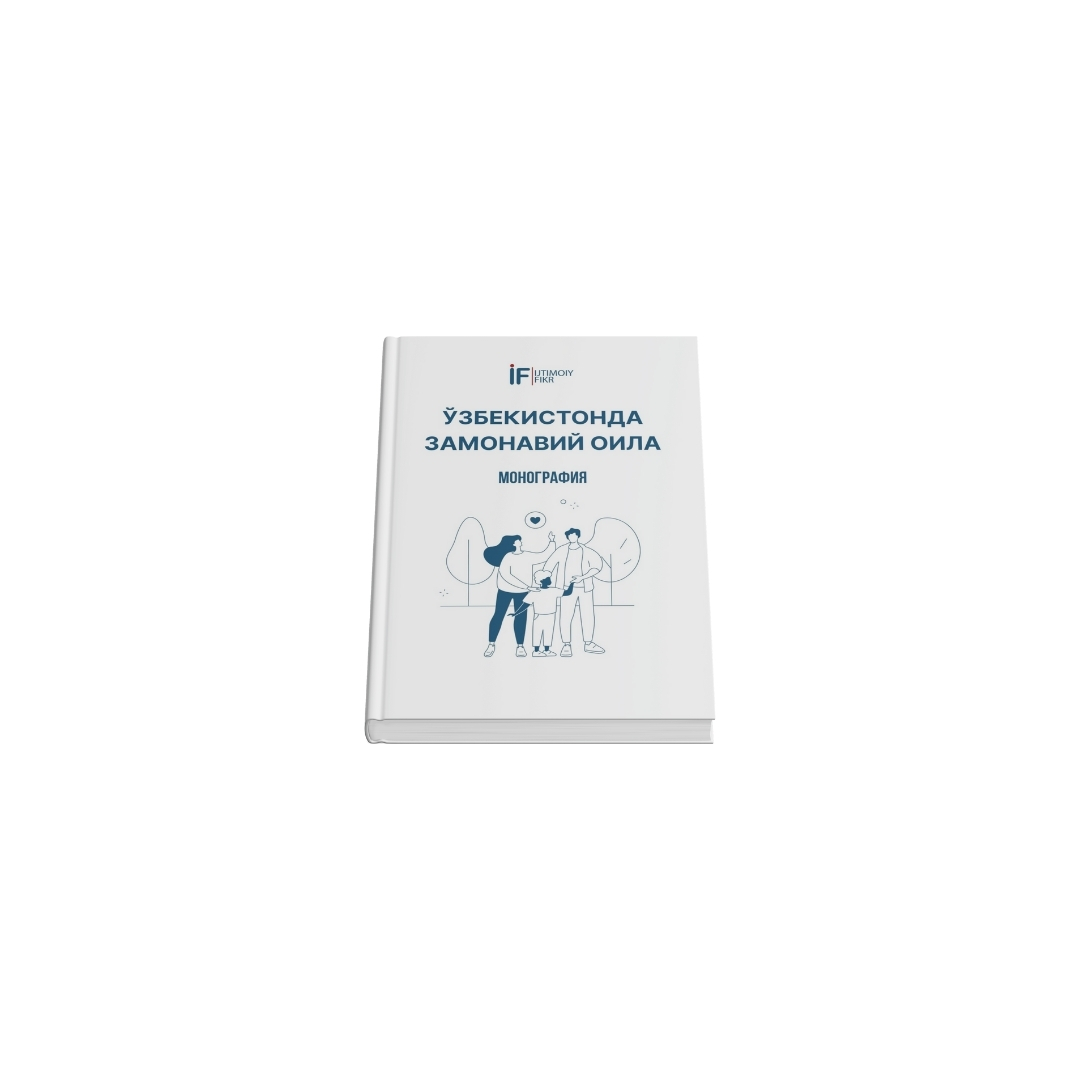19.05.2025
182
The Republican Center for the Study of Public Opinion "Ijtimoiy Fikr" presents the monograph "The Modern Family in Uzbekistan", which summarizes the results of large-scale sociological studies aimed at comprehensively examining the role and significance of the family in contemporary society. The publication is the result of systematic analytical work, based on face-to-face and telephone surveys, covering a wide range of topics: from the motivation to marry to citizens’ perceptions of family values, causes of divorce, factors of family stability, and public expectations regarding state policy in this area.
Based on the conducted research, the monograph identifies the main trends in the development of the family as a social institution, reflecting the complex interplay between traditional norms and modern social expectations.
One of the key findings is the family’s stable position as a central value: the majority of respondents consider it the foundation of life, a source of moral support, and the starting point for personal and social orientation.
The study reveals a dual trend in the development of the family institution. On one hand, respondents—especially those in older age groups—prefer preserving traditional values, which indicates the deep-rooted nature of family norms. On the other hand, many support the modernization of family relationships, including gender equality in spousal roles, delayed marriage, and a conscious approach to parenthood.
An overwhelming majority of participants view childrearing and education as the family’s primary mission. Financial support and emotional closeness are also seen as key components of stable marital relationships. At the same time, the transmission of customs and cultural norms, along with social integration, underscores the family’s role as a mechanism for generational continuity and the development of civic consciousness.
The monograph shows that age, life experience, and social status significantly influence attitudes toward financial independence within the family. The older generation often advocates for children's economic self-sufficiency, while younger respondents show a more flexible approach, allowing for temporary support during difficult times. This reflects a gradual but confident shift in public consciousness toward personal responsibility and maturity.
A separate section of the study is dedicated to the causes of divorce. Special attention is also given to the need for preventing early and consanguineous marriages, and to enhancing cooperation among schools, parents, and local self-governance institutions.
Another noteworthy finding is the growing positive attitude toward prenuptial agreements. Most respondents view them as tools for establishing transparent and stable relationships, especially in light of women's increasing economic independence and evolving traditional family roles.
Thus, "The Modern Family in Uzbekistan" reveals a complex, multilayered, and dynamic picture of the current family structure in Uzbekistan. It demonstrates that the family remains not only a stable social phenomenon but also a key element of national identity and social progress.
Family relations are at the center of social expectations, cultural transformations, and economic realities, which demand a thoughtful and balanced approach from both society and the state. In this context, Uzbekistan’s efforts in family support acquire strategic significance. State programs aimed at social protection, housing provision for newlyweds, the promotion of family education, and the prevention of divorce and domestic violence reflect the recognition of family policy as a national development priority.
Significant attention is paid to fostering a culture of responsible parenthood, strengthening the legal foundations of family relations, and expanding access to educational and advisory services for couples, especially in rural areas.
The development of partnerships between government agencies, mahalla institutions, educational organizations, and NGOs is becoming a key direction, contributing to the formation of a unified space for education and prevention.
The monograph emphasizes that without a comprehensive, scientifically grounded, and flexible approach to family policy, sustainable societal development is impossible amid global challenges and transformations. This is why family should remain at the core of strategic initiatives and long-term planning as the nucleus of social, cultural, and economic processes.
"The Modern Family in Uzbekistan" is not only the result of an extensive sociological analysis but also serves as a guidepost for the further development of scientific, social, and governmental thought in the field of family policy.
The data and conclusions have practical significance and can be used in the development and implementation of programs aimed at strengthening the family institution, improving citizens’ quality of life, and shaping a stable system of social values.
The authors emphasize the need to coordinate efforts at all levels—from families and local communities to government structures—and the importance of an interdisciplinary approach in studying and addressing family-related issues.
This publication will be of interest to a wide range of specialists and to anyone concerned with issues of social development, societal sustainability, and the future of the family as a fundamental institution of human existence.


